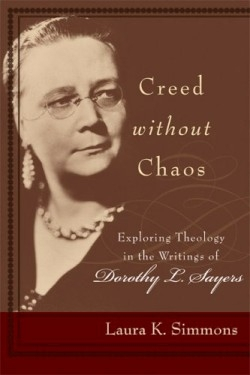Creed Without Chaos
Exploring Theology in the Writings of Dorothy L. Sayers
Before there was Mel Gibson’s The Passion of the Christ to bust the theological block, Dorothy L. Sayers shocked British audiences with her play, The Man Born to Be King. In the introduction to the controversial play of 1943, she writes: “His executioners made vulgar jokes about Him, called Him filthy names, taunted Him, smacked Him in the face, flogged Him with the cart, and hanged Him on the common gibbet—a bloody, dusty, sweaty, and sordid business.”
Better known as a detective novelist and Dante translator, Sayers aimed to reassert an earthy, sensual dimension to biblical figures, Jesus of Nazareth chief among them. Educated at Oxford in modern languages, Sayers’s brief advertising career furnished her valuable insight into the lives of ordinary people, and she brought this sensitivity to bear on what she saw as the failure of the Church to communicate the truth of revealed Christianity to believers and non-believers alike.
Sayers was a representative figure in the rise of lay theology in the 1930s and ‘40s, one constituent feature of the democratization of everyday life in the twentieth century. Belief in a caste of experts has eroded most everywhere in the modern world, and Sayers (along with C.S. Lewis and T.S. Eliot, among others) were leading figures in a movement to resurrect Christianity in an agnostic age. Sayers faulted the modern world’s loss of the concept of evil just as she rejected the smug Victorian equation of immorality with sexual sin. Central to her lay perspective on religious life was the idea that “the whole of a man’s work will be Christian if he is a Christian.” Her view, in which she was hardly alone, was that organized Christianity neglected actual human life in the world and had consequently lost much of its following.
The author is assistant professor of Christian ministries at George Fox Evangelical Seminary, and oversees the Master of Arts in Christian Ministries Program. While this particular study has its faults, a tendency toward cheerleading notable among them, renewed attention to Sayers and her work might certainly be useful in the current climate of religious discussion. Sayers was the rare combination of orthodoxy with an absolutely equal concern for men and women in this world: their well-being, their dignity, and their capacity for fulfillment.
The chapters on Work, Creativity and Art, and Women’s Issues make for the most interesting reading here. Given that much of what Sayers had to say (and said really well) came in her letters to friends and strangers—work not readily accessible in bookstores—Simmons’s book performs a valuable service in placing before readers a complex writer and her undeniable passion for the human community.
Disclosure: This article is not an endorsement, but a review. The publisher of this book provided free copies of the book to have their book reviewed by a professional reviewer. No fee was paid by the publisher for this review. Foreword Reviews only recommends books that we love. Foreword Magazine, Inc. is disclosing this in accordance with the Federal Trade Commission’s 16 CFR, Part 255.

